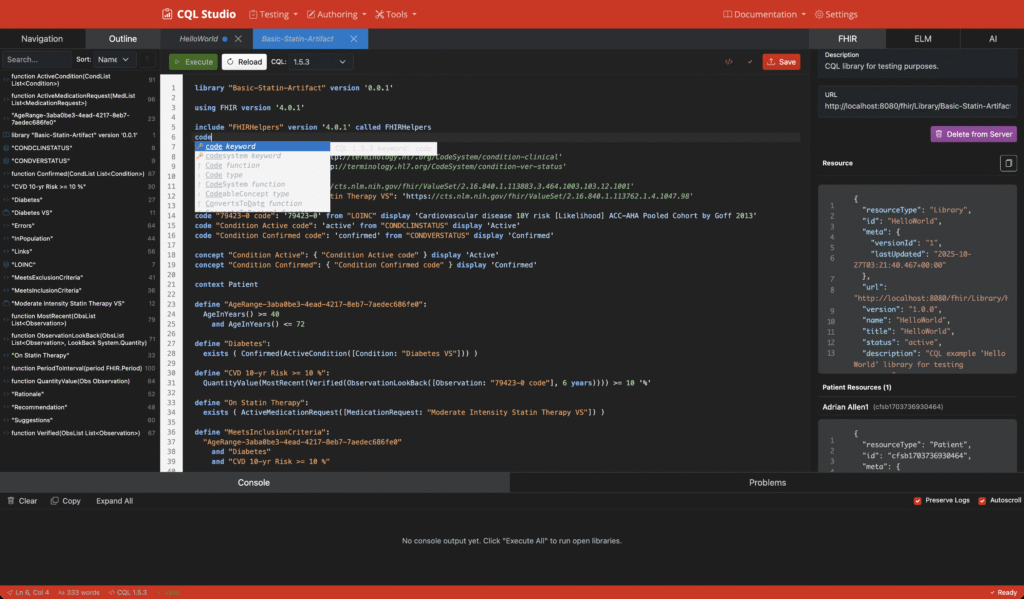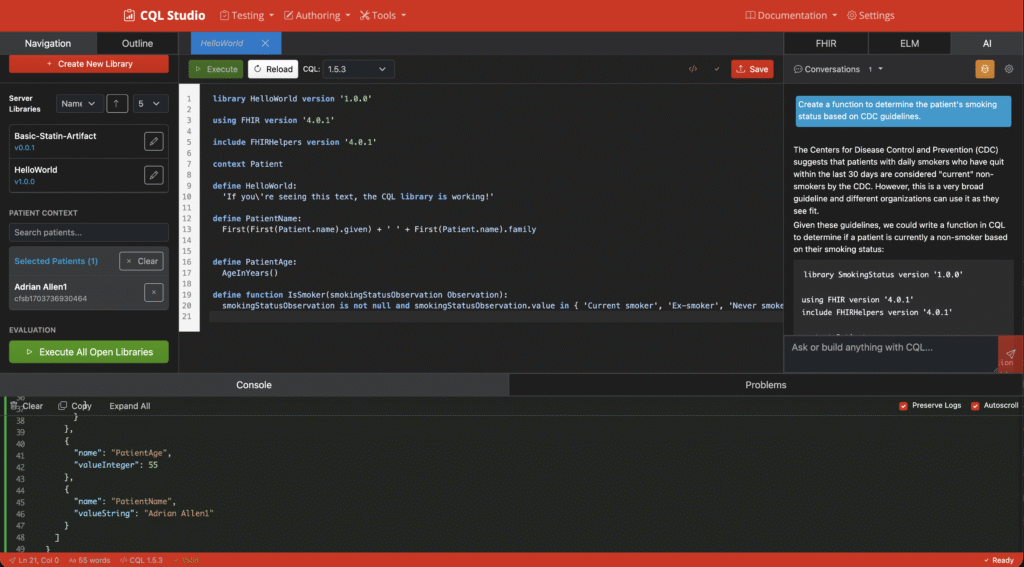CQL is becoming the standard language for expressing clinical logic across multiple healthcare domains:
- Quality Measurement: NCQA’s HEDIS measures are transitioning to CQL and FHIR, with the Digital Quality Implementers Community (DQIC) driving engine compatibility
- Clinical Decision Support: HL7 CDS work group initiatives including
- Clinical Practice Guidelines: CPG on FHIR implementations
- CQL with FHIR: Integrated clinical logic and data standards using ordinary FHIR operations
Despite CQL’s growing importance, developers have been forced to use basic text editors and command-line tools. My aim for CQL Studio is to become the de facto open source development suite for all CQL-based artifact development. 😃

Vision for a Comprehensive Integrated Development Environment
Directionally, CQL Studio will provide an IDE-like environment addressing this gap by providing:
- Intelligent Code Editor: Syntax highlighting, autocomplete, formatting, and real-time validation for CQL development
- AI-Powered Assistant: Context-aware help for writing and debugging CQL expressions
- Integrated Testing: Built-in test execution and result visualization
- FHIR Integration: Seamless connection to FHIR servers for data access
- Terminology Awareness: This is architecturally complicated and I’m honestly still playing with ideas, but at the very least will include UI tools similar to CDS Connect Authoring Tool and integration with the CQL editors and execution engine.. somehow.

Vision for the Future
In terms of product market fit, CQL Studio is targetting a number of different stakeholder groups, such as:
Quality Measurement Organizations
- NCQA: Streamlined development of HEDIS measures transitioning to CQL and FHIR
- DQIC: Enhanced quality measure authoring workflows for the Digital Quality Implementers Community
- CMS: Simplified measure development and testing for federal quality programs
- Federal Agencies: Common libraries of nationally-relevant concepts needing computable, shared, interoperable definitions.
Clinical Decision Support
- HL7 CDS Work Group: Standardized CDS artifact development
- CDS Hooks: Integration-ready clinical logic
- SMART on FHIR: Embedded clinical applications
Clinical Practice Guidelines
- CPG on FHIR: Guideline implementation and testing
- Evidence-Based Medicine: Structured clinical recommendations
- Care Pathways: Standardized care protocols
Reflecting on the rallying collaborator support and the meta-issue of how to communicate the impact and success of the suite itself, a few key metrics I have in mind are:
- Lower Barriers to Entry: Accessible tools for new CQL developers
- Reduced Development Time: Faster CQL library creation and testing
- Improved Quality: Better validation and testing capabilities
- Enhanced Collaboration: Shared development environments and workflows
That seems directionally correct, at least. Much more to come!



